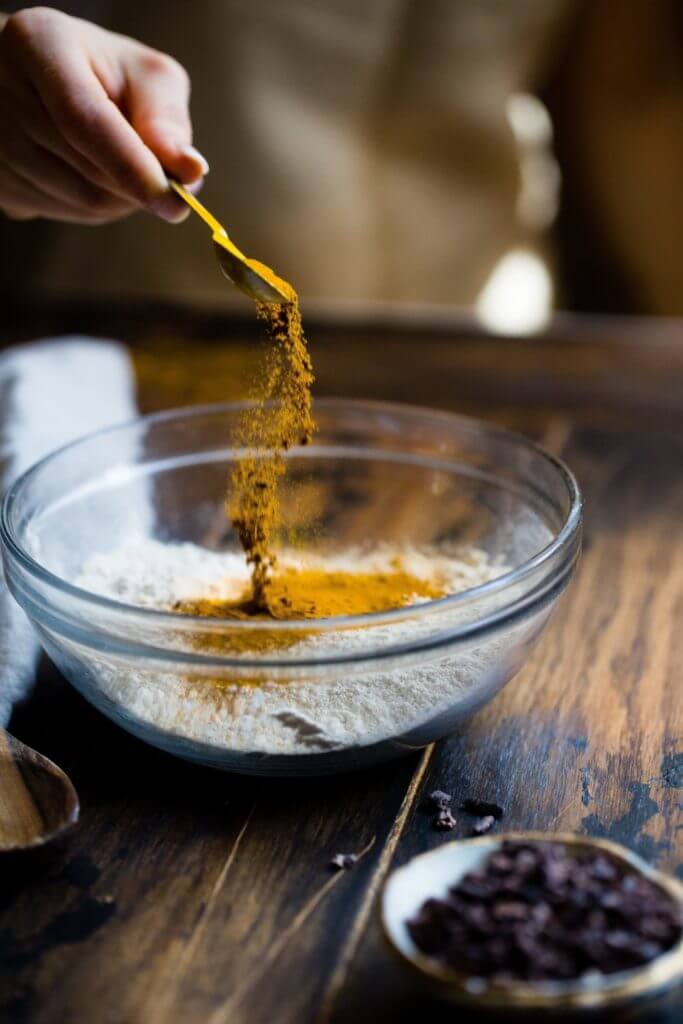Let’s talk about something that might be on your mind after finishing cancer treatment: getting your hair back. Chemo hair loss affects about 65% of patients within days to weeks of starting medical treatments.
While everyone tells you “it’ll grow back,” waiting for those first signs of regrowth can feel like forever. The good news? What you eat can actually make a difference in how your hair comes back stronger and healthier.
Your hair follicles and hair root cells are some of the fastest-growing cells in your body. That’s exactly why chemotherapy and radiation therapy target them along with cancer cells.
But here’s what’s encouraging: those same fast-growing hair cells can bounce back with the right nutritional support. Most people start seeing hair regrowth about 3 to 6 months after finishing treatment, though everyone’s timeline is different.
Get Your Free Clean Scan Plan!
As a cancer dietitian, I help survivors cut through the noise with my NED Method 5-pillar approach proven to reduce cancer risk and support long-term health.
Why Chemotherapy and Radiation Therapy Cause Hair Loss?
Chemotherapy drugs work by attacking rapidly dividing cells. While this effectively targets cancer cells, it also affects your hair follicles, which are constantly in growth mode.
The hair roots become damaged, causing hair thinning or complete hair loss. Radiation therapy can have similar effects when targeted at the head or neck area.
Not all cancer treatments cause the same amount of hair issues. Some people experience mild hair thinning, while others face complete women’s hair loss, including eyebrows and eyelashes. The type and dose of your chemotherapy drugs determine how much hair you’ll lose.
When Hair Starts Growing Back
According to recent studies, most patients see hair regrowth within 3.3 months after stopping chemotherapy treatments. About 13% of people actually start seeing growth before treatment ends.
Your new hair color might surprise you. It often grows back with a different texture, shade, or curl pattern initially.
The hair growth cycle has three phases: anagen (growth), catagen (transition), and telogen (rest). Cancer treatments push hair follicles into the resting phase prematurely. Getting the right nutrients, including essential amino acids, helps move those follicles back into active growth.
Key Nutrients for Hair Regrowth
Think of these nutrients as the foundation for rebuilding your hair from the inside out. While your body is recovering from treatment, it needs extra support to restart those hair follicles and get them producing again.
The good news is that these key nutrients aren’t exotic or hard to find – they’re in foods you probably already enjoy. Let’s break down the big players that research shows make the most difference.
Protein and Amino Acids – The Building Blocks
Your hair is made almost entirely of protein, specifically keratin formed from amino acids. Without enough protein and these essential amino acids, your hair follicles can’t produce strong, healthy hair. Studies show that protein deficiency directly impacts hair growth and can slow down the regrowth process.
- Best sources: Eggs, chicken, fish, lean beef, Greek yogurt
- Plant options: Beans, lentils, quinoa, nuts
- Daily goal: Aim for protein at every meal
Omega-3 and Omega-6 Fatty Acids
Both omega-3 and omega-6 fatty acids support scalp health and may help hair follicles stay in the growth phase longer. These healthy fats reduce inflammation around hair roots and help prevent scalp problems that can slow regrowth.
- Omega-3 sources: Salmon, mackerel, sardines, tuna
- Omega-6 sources: Sunflower seeds, pumpkin seeds, evening primrose oil
- Plant sources: Walnuts, flaxseeds, chia seeds (contain ALA form)
- Recommendation: 2-3 servings of fatty fish per week
Remember, your body needs these omega fatty acids for many functions beyond hair growth, including reducing inflammation from cancer treatment. Check out our guide on how walnuts can reduce cancer risk for more omega-3 benefits.
B Vitamins for Hair Health
The B vitamin complex, especially biotin (Vitamin B7), vitamin B12, riboflavin, and folate (folic acid), plays crucial roles in hair follicle function. Research shows that deficiencies in these vitamins are linked to hair loss.
Biotin (Vitamin B7)
Biotin helps produce keratin, the protein that makes up your hair structure. While biotin supplements are popular, studies show they only help if you’re actually deficient.
- Food sources: Eggs, almonds, sweet potatoes, mushrooms
- Fun fact: Your gut bacteria actually make some biotin for you!
Folate/Folic Acid
Folate (the natural form) and folic acid (the synthetic form) help create new cells, including hair root cells. This B vitamin is especially important for rapid cell division.
- Natural sources: Dark leafy greens, citrus fruits, beans
- Fortified sources: Enriched grains and cereals
Vitamin B12
This vitamin helps create red blood cells that carry oxygen to your hair follicles. Low B12 levels can slow hair regrowth significantly.
- Animal sources: Fish, meat, eggs, dairy
- Plant sources: Fortified cereals, nutritional yeast
Navigate Your Recovery with Confidence
This research is powerful so let’s get you taking the next step with The Clean Scan Plan. My clients get results because we translate it into simple, repeatable habits inside the NED Method. You can do the same, begin with the first step.
Essential Vitamins and Minerals
Beyond the major nutrients, your hair needs specific vitamins and minerals to actually grow. These micronutrients might be small in quantity, but they’re mighty in impact.
They work behind the scenes to create the right environment for hair growth – from building new follicles to protecting existing ones from damage.
Many cancer survivors are low in these nutrients, which is why focusing on them can really speed up your hair recovery.
Vitamin D – The Sunshine Vitamin
Research shows that over 50% of people with hair loss have vitamin D deficiency. Vitamin D helps create new hair follicles and may wake up dormant ones. Many cancer survivors have low vitamin D levels, making supplementation often necessary.
- Best sources: Fatty fish, egg yolks, fortified milk
- Sunlight: 15-20 minutes of sun exposure (with proper protection)
- Note: Ask your oncologist about vitamin D testing and supplementation
Vitamin E – The Antioxidant Protector
Vitamin E is a powerful antioxidant that helps protect hair follicles from damage and supports scalp health. It also improves blood circulation to the scalp, which can help with common scalp issues during recovery.
- Top sources: Sunflower seeds, almonds, spinach, avocados
- Daily needs: 15 mg for adults
- Bonus: Also helps reduce oxidative stress from treatments
Iron
Iron deficiency is the most common nutrient deficiency worldwide and a major cause of hair loss, especially in women’s hair loss cases. Iron helps red blood cells carry oxygen to hair follicles.
- Heme iron (best absorbed): Red meat, chicken, fish
- Non-heme iron: Spinach, lentils, fortified cereals
- Tip: Pair plant-based iron with vitamin C for better absorption
Zinc
Zinc plays a vital role in hair tissue growth and repair. It also helps keep the oil glands around follicles working properly, preventing scalp problems. Low zinc levels are directly linked to hair loss.
- Top sources: Oysters, beef, pumpkin seeds, chickpeas
- Daily needs: 8-11 mg for adults
Vitamin C
Your body needs vitamin C to produce collagen, a key part of hair structure. It also helps absorb iron and protects hair follicles from damage.
- Best sources: Bell peppers, citrus fruits, strawberries, broccoli
- Bonus: Vitamin C’s antioxidant properties support overall recovery
Learn more about anti-inflammatory foods that support recovery and hair health.
Foods That Support Hair Regrowth
Some foods pack multiple hair-healthy nutrients in one serving. Here are the top choices for cancer survivors focusing on hair regrowth:
Eggs – The Hair Superfood
Eggs contain biotin, protein, zinc, selenium, vitamin E, and iron – nearly everything your hair needs. They’re also easy to digest when you’re recovering from treatment.
Salmon and Fatty Fish
Rich in omega-3 fatty acids, protein, and vitamin D, salmon supports both scalp health and hair follicle function. Aim for wild-caught when possible.
Spinach and Leafy Greens
Packed with iron, folate, vitamins A, C, and E, these cancer-fighting greens also support hair regrowth.
Sweet Potatoes
High in vitamin A, which helps produce sebum that keeps hair healthy and prevents scalp issues.
Greek Yogurt
Contains protein, vitamin B12, and probiotics that support overall health and nutrient absorption.
Should You Take Hair Growth Supplements?
While hair growth products flood the market, research shows that supplements only help if you have an actual deficiency. Taking high doses of biotin or other supplements without a deficiency won’t speed up hair growth and might interfere with medical tests.
Here’s what the research says:
- Biotin supplements: Only effective if you’re deficient (rare in healthy adults)
- Vitamin B Complex: May help if your diet is limited
- Collagen supplements: Limited evidence for hair benefits
- Always check first: Talk to your oncology team before starting any supplements
What About Cold Caps and Scalp Cooling?
Scalp cooling systems and scalp compression techniques can reduce hair loss by about 50% during chemotherapy. These cold caps work by reducing blood flow to hair follicles during treatment, protecting them from chemotherapy drugs. While not everyone is a candidate, it’s worth discussing with your oncology team if you’re starting treatment.
Cancer Hair Care and Scalp Care During Regrowth
Taking care of your scalp creates the best environment for new hair growth. Many hair care experts and hair loss specialists recommend a gentle hair care routine during recovery:
- Use gentle, fragrance-free hair care products (baby shampoo works great)
- Consider specialized treatments like Revolve Shampoo Treatment for Women if recommended by your team
- Avoid heat styling until hair is fully recovered
- Massage your scalp gently to improve blood flow
- Try scalp concealer for thinning areas if it helps your confidence
- Protect from sun with hats or sunscreen for scalps
- Stay hydrated – aim for 8-10 glasses of water daily
Putting It All Together: Your Hair Recovery Meal Plan
Here’s a simple day of eating that includes all the key nutrients for hair regrowth:
- Breakfast: Scrambled eggs with spinach and whole grain toast
- Snack: Greek yogurt with berries and walnuts
- Lunch: Salmon salad with mixed greens and sweet potato
- Dinner: Chicken breast with quinoa and steamed broccoli
Remember, no single food will magically regrow your hair overnight. It’s about consistently eating a variety of nutrient-rich foods that support your body’s recovery process.
Ready to Take Control of Your Recovery?
Ready for my 5 pillars approach I used to help my clients to lower recurrence risk over 50%? Yes! Send Me the Free Clean Scan Plan →
The Bottom Line
Hair regrowth after cancer treatment takes time and patience. Focus on eating a balanced diet rich in protein, amino acids, omega-3 and omega-6 fatty acids, B vitamins including folate, vitamins D and E, iron, and zinc. These nutrients support not just your hair, but your overall recovery too.
Your hair color might change at first – maybe curlier, straighter, or a different shade. This is normal and usually temporary. Most importantly, be gentle with yourself during this process. Your body has been through a lot, and hair regrowth is a sign that you’re healing.
For more support during your recovery, check out our guides on healthy weight gain strategies and essential diet tips for survivors.
Remember, you’re not alone in this journey. Every day, your body is working to heal and recover. With the right nutrition and care, you’re giving your hair the best chance to come back strong.
References
- https://www.ncbi.nlm.nih.gov/pmc/articles/PMC12073702/
- https://www.medicalnewstoday.com/articles/319446
- https://pubmed.ncbi.nlm.nih.gov/25573272/
- https://www.ncbi.nlm.nih.gov/pmc/articles/PMC5582478/
- https://www.frontiersin.org/journals/nutrition/articles/10.3389/fnut.2024.1479337/full
- https://www.health.harvard.edu/diseases-and-conditions/vitamins-minerals-and-hair-loss-is-there-a-connection
- https://www.cancer.org/cancer/managing-cancer/side-effects/hair-skin-nails/hair-loss/cold-caps.html




